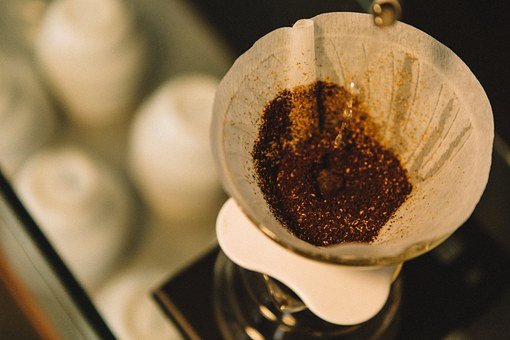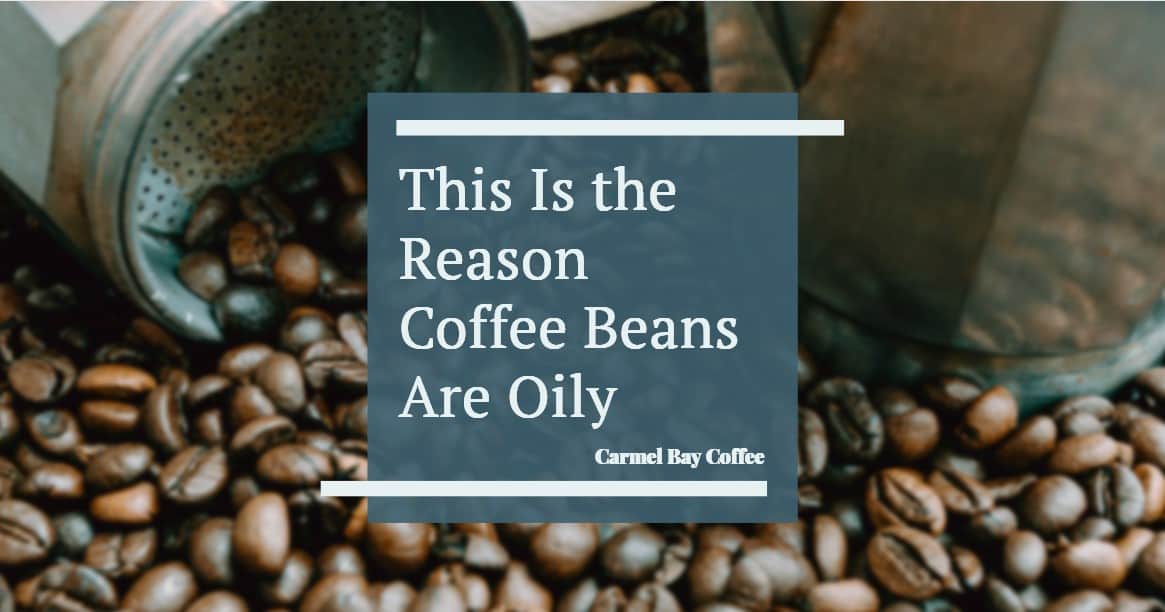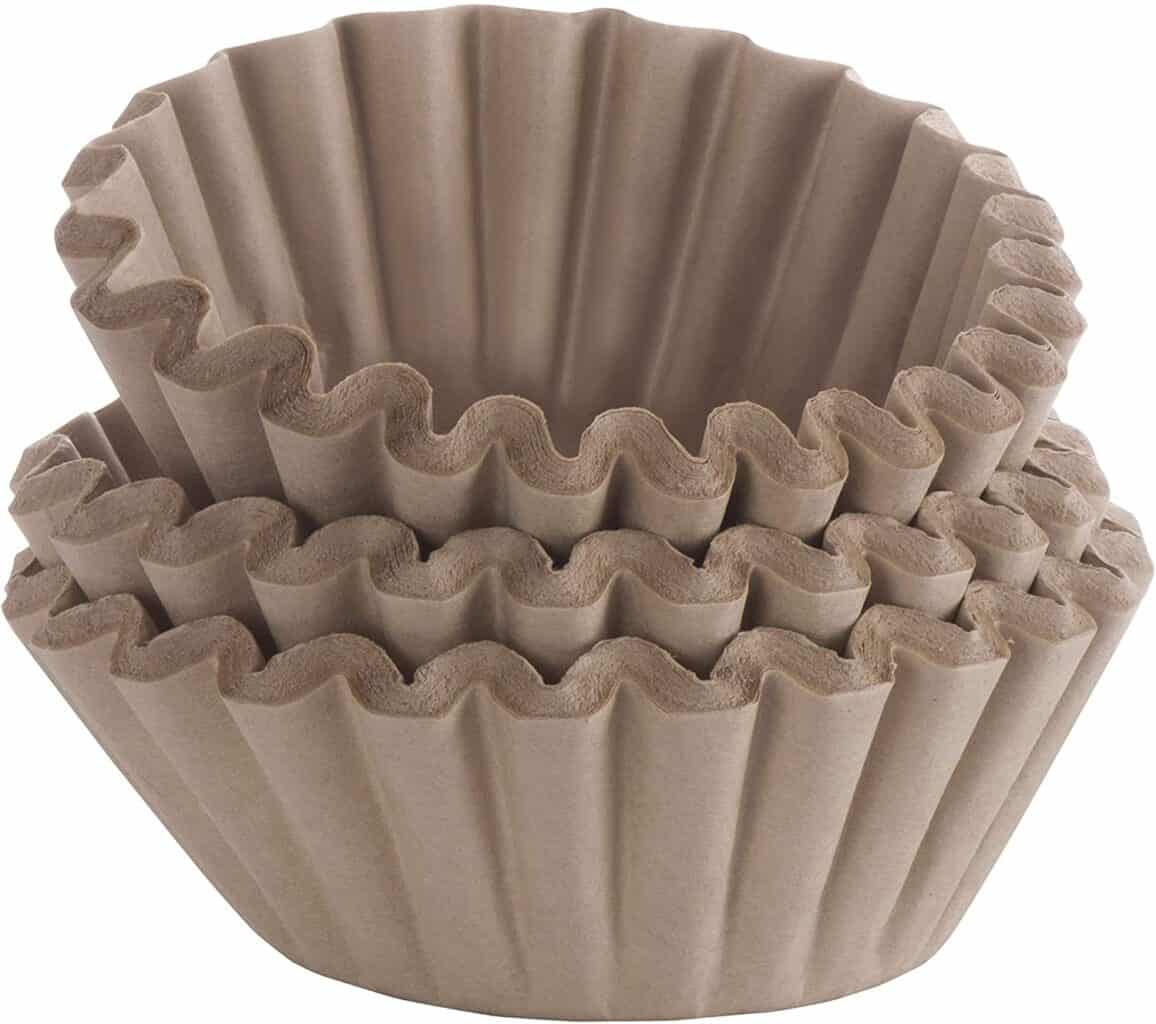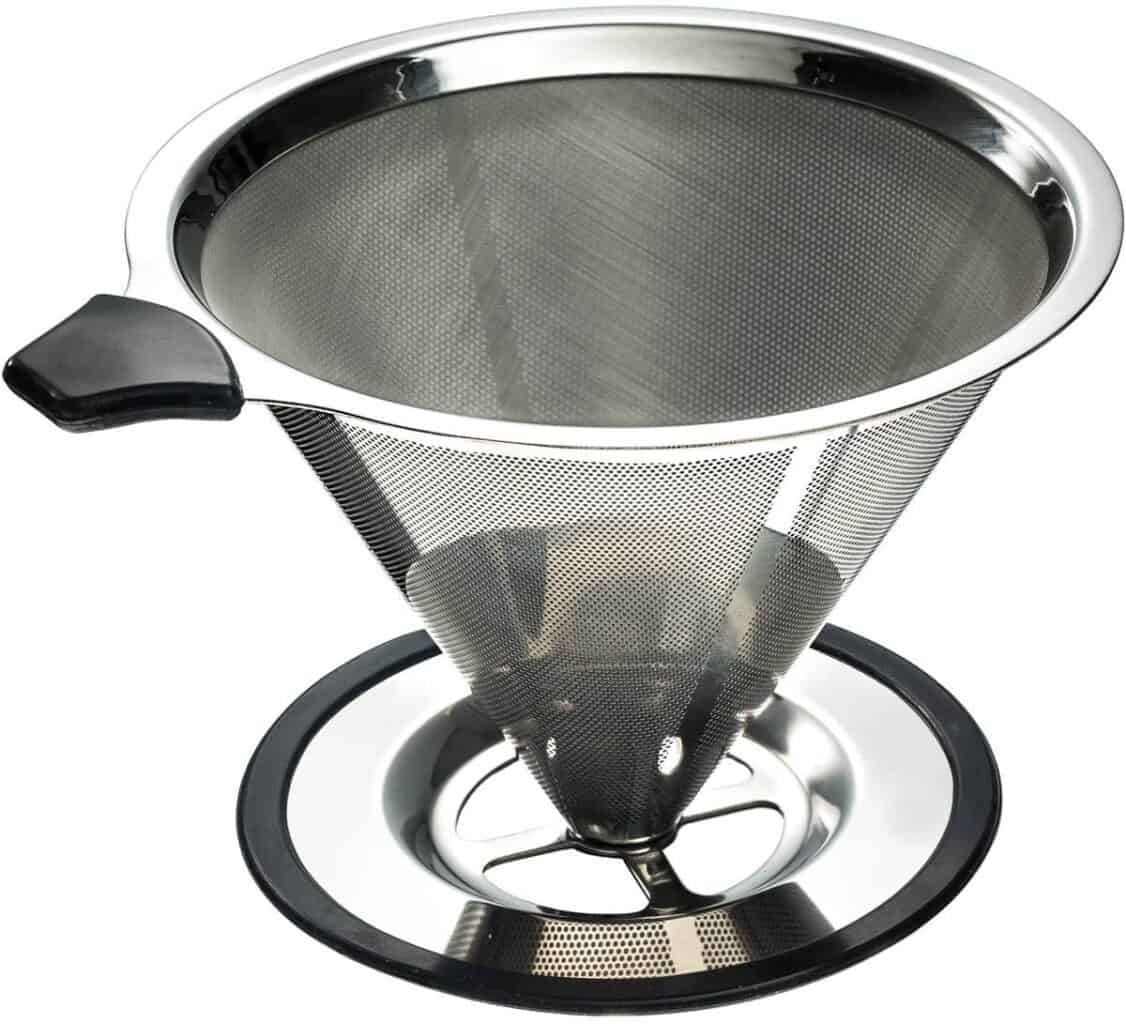More and more households are composting their food scraps for a more sustainable and eco-friendly lifestyle. Whether you are composting old coffee grounds in your own garden or taking advantage of a neighborhood composting service, it can be tough to figure out what you can compost and what you can’t.
Sometimes it’s easy – certain products are branded as compostable or stores put all of the eco-friendly and compostable items in a single-aisle but sometimes it’s a product we’ve all been using for years but have no idea what to do with it. I’m talking about coffee filters.
Some coffee filters are indeed compostable but others are not, it’s not a simple yes or no. Today we’ll find out which filters we can compost, which ones we can reuse and which ones to avoid all together.
Are Coffee Filters Recyclable
Yes and no. Unused coffee filters and/or Chemex filters can be recycled but, realistically, we want to use our coffee filters! What’s the point of a coffee filter if it’s not filtering our coffee!?
Coffee filters are a crucial part of our morning brew, so we won’t recycle our filters before we get to use them.
Used coffee filters are not recyclable because of the oils that are deposited into the filter during the brewing process.
Coffee carries a lot of oils, which are more obvious in dark roast coffees. This goes the same for all kinds of brands, like Hario coffee filter.
If you want to find out why coffee beans are oily, take a look at our article, Why Are Coffee Beans Oily – Here are All The Reasons!
Because of the oily residue left from the coffee, recycling facilities will not accept used coffee filters. This is why composting our used filters is the best option.
Most used coffee filters can be composted in your backyard or by a composting service – grounds and all!
The only exception to this is if your filters are coated in plastic or are treated with chemicals – more on that right now!
What If They Are Bleached Filters
This is where things get a little bit more complicated. When buying coffee filters, you often have the option between white bleached and brown unbleached.
While both filters have different pros and cons when it comes to composting your coffee filters, only some filters are suited for your household compost.
Unbleached filters are perfectly safe for your garden and compost. Unbleached or natural filters are not treated with any chemicals, which is why they are usually brown in color.
Tupkee makes natural brown coffee filters, you can check them out here.
When it comes to bleached filters, there are too many types of bleached filters and only one is suitable for composting. There are two commonly used processes for bleached filters: chlorine bleaching and oxygen bleaching.
Filters that are bleached with chlorine are not ideal for composting as they may deposit chlorine into the soil which, is not suitable for plant and animal life.
Luckily, more and more filters are bleached with oxygen.
The oxygen bleaching process does not use harsh chemicals and is generally better for the environment because of that. However, any bleaching process is an added step in production, so unbleached filters are slightly more efficient by default.
Next time choose your coffee filters, check the box to find out which method of bleaching those filters use.
How Long Do Coffee Filters Take to Decompose
Coffee filters are biodegradable, but they certainly don’t disappear overnight. Biodegradable coffee filters take an average of six to eight months to decompose in your compost.
The process can be sped up by large composting facilities using heat processing, but the process is much slower for the average backyard compost.

Luckily, there are a few shortcuts you can take to speed up that process.
It might be easy to simply throw your compostable coffee filters and grounds right into your compost without a second thought, but you can help out the composting process with a few simple steps.
First, shake out the coffee grounds onto the compost heap, then either cut up with scissors or shred the coffee filter by hand before adding your compostable coffee filters.
You can also break up your compostable coffee filters by roughly tossing the filters if they are already in the compost pile. Breaking the coffee filters up into smaller pieces will help speed up the composting process.
Do Coffee Filters Contain Plastic
Some do and some don’t. I wish it was a straight answer but you’ll have to do some digging to make sure that the coffee filter you use doesn’t contain any plastics.
A lot of people are curious about what’s in coffee filters and rightful so. It turns out that many coffee filters can contain a small amount of plastic, and are not compostable.
Some filters are made from a mix of polypropylene (PP) and/or cellulose-based filter paper. The PP is used to add strength, while the filter paper allows water in but not out. Contrary to popular belief, these kinds of coffee filters are not compostable because they have plastics mixed into them instead of being natural fibers like cotton or hemp.
Most people don’t know that their cardboard cup actually contains some plastic as well!
There are some alternatives you can use if you want your caffeine fix without all the extra waste: reusable metal mesh filters like Bodum’s Chambord French Press; cone-shaped pour-overs with cloth or bamboo type materials for filtering the grounds out; or even using biodegradable cups
Lets get into all the alternatives to coffee filters so we don’t have to even worry about if our filter are compostable or not.
Alternative Coffee Filter Options
So what do we do if we don’t have access to composting or simply want an alternative to paper filters? Thankfully, there are plenty of ways to avoid paper filters altogether.
Paper filter alternatives include filterless brew methods like a stovetop Moka pot or french press. While these methods separate the coffee grounds from your morning brew, there is no need for an additional filter.
Both the Moka pot and french press have filtering mediums built into the brewer itself. Super easy!
Bodum Brazil French Press is a popular coffee maker we recommend. Check to see if it’s still available on Amazon here.
Alternatively, there are cloth filters and metal filters available for lots of different brew methods, including electric coffee pots and pourovers. Cloth filters are best suited for conical pourovers as they mimic the shape of the pourover.
This type of reusable filter is great for smaller kitchens with less storage space as they are easy to fold up and store just about anywhere. However, cloth filters require cleaning and drying after each use, so there is an additional step to factor in, but it’s not that big of a hassle.
Metal filters are a great alternative for people who brew coffee frequently and don’t want to deal with paper or cloth filters.
Metal coffee filters are made of a fine mesh, usually copper or stainless steel, and are available in different shapes, sizes, and gauges. Some pour-overs come with these fine mesh filters already, but they are also available for many different brewers, including electric coffee makers.
This reusable filter style has become quite common and is even available for more unique brew methods such as the Aeropress.
From compostable coffee filters to built-in brewer filters, whether you brew every morning or once a week, with an electric coffee maker or an Aeropress… there is a coffee filter for you.
I just scratch on the surface of the best ways of making coffee. I share a lot more on making the best coffee at home even without an espresso machine in my article, Easy Ways to Level Up Your Home Barista Game.
Wrapping Up
You should take a minute to consider your options and make the best decision for you. If they are compostable, then that’s great!
But if not, it is important to think of how long these filters will last in landfills or as litter on roadsides before deciding which type of filter is better for you. The alternatives we mentioned may sound like more work but could be worth the effort depending on what matters most to you. From years of drinking coffee, testing every way, I feel the best coffee is from the alternative section above, i.e., french press, Aeropress, etc…
Consider your needs and preferences when making this decision so that coffee doesn’t become an environmental problem instead of a tasty beverage. We hope this has been helpful information about different types of coffee filters. Feel free to leave a comment down below with your thoughts.




